”I tremble for my country when I reflect that God is just;
that his justice cannot sleep forever“
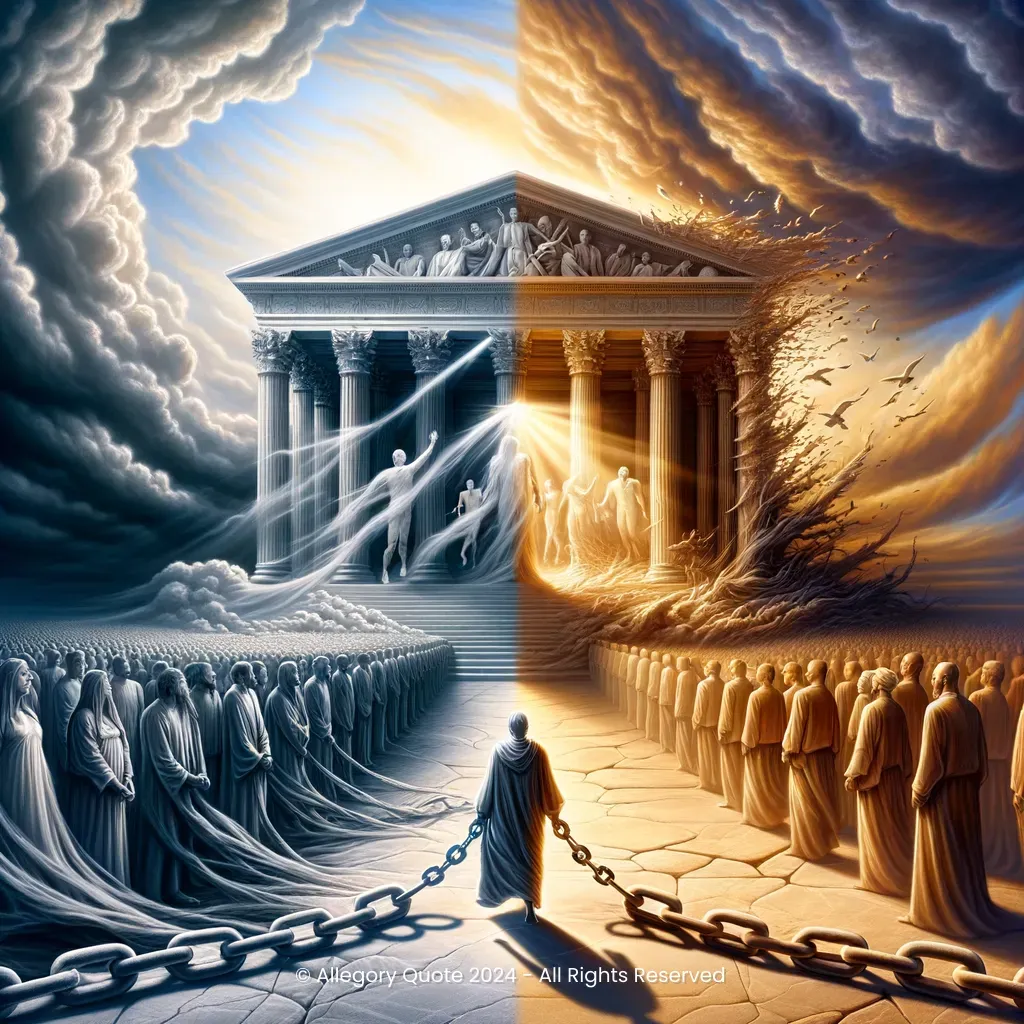
- Meaning
- This phrase reveals a deep concern regarding the moral integrity of a nation, especially in the context of its actions and policies. Jefferson is expressing a fear that divine justice will eventually hold accountable those who perpetuate injustices, such as the institution of slavery. By invoking God, Jefferson highlights the moral and ethical dimensions of justice that transcend human law, suggesting that injustices cannot remain unpunished indefinitely.
- Allegory
- The central historical figure represents Thomas Jefferson, a symbol of the nation’s founding principles. The courthouse made of clouds signifies that the ultimate justice he fears is divine, beyond human manipulation. The shadowy figures becoming clear represent the enslaved individuals whose plight is increasingly seen and acknowledged with divine illumination. The split sky symbolizes the dual reality of persistent injustice and the hope for justice's awakening. The trees with roots and chains illustrate the deeply rooted issue of slavery intertwined with the nation's history, while the breaking chains suggest progress toward moral justice and liberation.
- Applicability
- The phrase can be applied to personal life by prompting individuals to consider the long-term moral consequences of their actions. It serves as a reminder that unethical behavior, even if it seems to be beneficial or unnoticed in the short term, will eventually be subject to accountability. In a broader societal context, it encourages reflection on national policies and collective actions, urging a commitment to justice and ethical conduct.
- Impact
- This phrase has had a significant impact on American thought, particularly in discussions about slavery, justice, and moral responsibility. It has been cited in debates addressing not only historical issues of slavery but also contemporary issues of civil rights and social justice. It underscores the idea that ethical considerations should guide national and individual actions, implying that violating moral principles can have grave consequences.
- Historical Context
- This quote originated in the late 18th to early 19th century, a period marked by intense debate over slavery in the United States. Jefferson, despite holding slaves himself, recognized the contradictions and moral dilemmas that slavery posed to the ideals of freedom and equality championed in the American Revolution.
- Criticisms
- Critics have noted the hypocrisy in Jefferson's words, given that he was a slave owner. The observation that he owned slaves while expressing moral concerns about divine justice and slavery has led to debates about his character and the practical application of his ideals. Some argue that his failure to act on these beliefs undermines the strength of his moral stance.
- Variations
- While there are no direct variations of the phrase, it has been interpreted in different ways across cultures that emphasize moral retribution and the notion that justice will ultimately prevail. In many religious and philosophical traditions, the belief in an ultimate form of divine or karmic justice that corrects wrongdoing is a common theme.
-
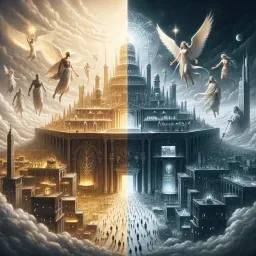
If men were angels, no government would be necessary.
-
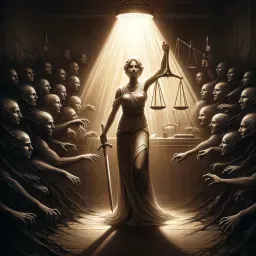
Facts are stubborn things; and whatever may be our wishes, our inclinations, or the dictates of our passion, they cannot alter the state of facts and evidence.
-

National honor is national property of the highest value.
-
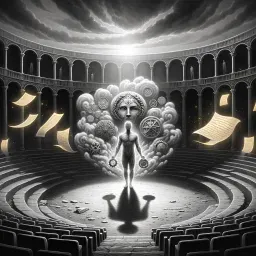
Reputation is an idle and most false imposition; oft got without merit, and lost without deserving.
-
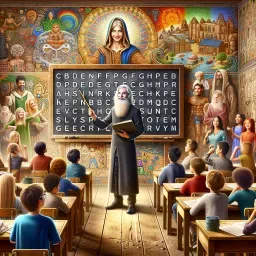
It is a damn poor mind indeed which can't think of at least two ways to spell any word.
-

Nothing will come of nothing.
-
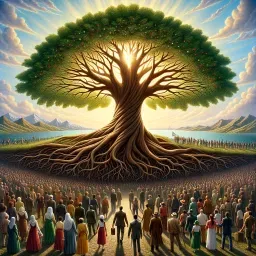
I contend that the strongest of all governments is that which is most free.
-
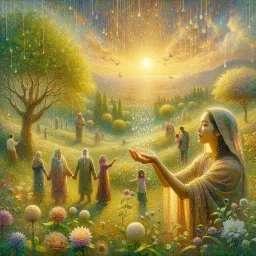
The quality of mercy is not strain'd, it droppeth as the gentle rain from heaven upon the place beneath.
-

No president who performs his duties faithfully and conscientiously can have any leisure.
-

It is better to be alone than in bad company.
No Comments